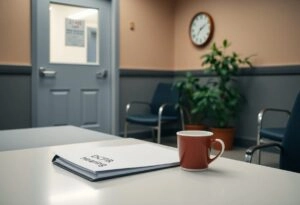DCF Red Flags That Will Make DCF Take a Child Away
Imagine a mom named Emily from Springfield who decided to run into a store quickly to grab some baby formula. She left her five-year-old son, Jack, asleep in his car seat because she was only going to be gone for a short time. Unfortunately, while she was inside, Jack woke up and started crying. A person walking by the car saw Jack alone and crying, and they called the Department of Children and Families (DCF) to report what they saw. This is when DCF red flags go up and DCF gets ready to pounce.
This led to a situation where DCF had to check if Jack was okay and if his mom made a safe choice. Even though Emily thought Jack would be fine for those few minutes, DCF has rules that they follow to make sure kids are safe all the time. This includes situations where a child is left alone in a car because it can be dangerous.
When DCF gets a call like the one about Jack, they start by figuring out if they need to look more into the situation. This is called a screening. If they think they need to learn more, they will start an investigation to understand everything about what happened. They talk to the parent, and sometimes they might need to visit the home or talk to other people who know the family.
This guide will help parents like Emily understand what happens if DCF screens in an allegation, why they take it seriously, what DCF red flags look like, and what parents can do about it. We’ll give tips on how to talk to DCF and how to get help if you find yourself in a situation like this.
Stay tuned to learn how to handle situations where someone might question your choices as a parent, and find out how to keep things safe for your kids.
Understanding the Role of DCF in Child Safety
The DCF in Massachusetts serves a crucial role in child welfare, tasked with the protection and safety of children across the state. As a guardian entity for minors, DCF’s operations encompass both preventive and reactive measures to shield children from abuse and neglect, including instances where they must take action to remove a child from their home for their safety.
For parents, understanding how DCF operates can provide clarity and peace of mind about what triggers the agency’s involvement and how best to interact with them if needed.
DCF’s preventive efforts are widespread, offering support services to at-risk families, educational programs for parents, and collaborative efforts with schools and healthcare facilities to proactively monitor and support child welfare.
On the reactive side, DCF has the authority to intervene in situations with an immediate risk to the child’s safety. This could involve anything from in-home assessments and safety planning to, in severe cases, removing children from their current environments to protect them from further harm.
What Triggers DCF to Conduct an Investigation?
An investigation by DCF can be initiated from various sources that suggest a child may be at risk. The agency prioritizes the immediate safety of the child, using reports from mandated reporters and concerned citizens to identify potential danger.
- Mandated Reporters: These include teachers, doctors, nurses, and social workers who are legally obliged to report any suspicions of child abuse or neglect. Failure to report such suspicions in Massachusetts can lead to legal consequences for these professionals.
- Community Reports: Neighbors, passersby, or any community member who notices unusual or unsafe conditions can also make reports.
Individuals are supposed to report whenever they have suspicion of child abuse/neglect. Examples of such triggers and red flags for DCF to investigate include, but are not limited to:
- A child displaying signs of physical injuries without a clear explanation.
- Observations of a child left alone in a potentially dangerous situation, such as in a car on a hot day.
- Reports of excessive absences from school without justification, which could indicate neglect.
In Massachusetts, DCF conducts thousands of investigations each year, with a significant portion resulting from community tips and reports from mandated reporters. Data shows that proactive community involvement and the vigilance of mandated reporters play essential roles in protecting children’s welfare. However, because these situations are easy to misinterpret, many innocent families are swept up in the mix.
Legal Guidelines for Leaving Children Unattended
Navigating the complexities of Massachusetts law regarding leaving children unattended in vehicles can be challenging. The state doesn’t offer a clear-cut age or conditions for leaving a child alone either at home or in a car.
However, the legal framework is designed to prevent situations that could put children in a state of danger. This broad term can encompass various circumstances, including leaving a child unattended in a vehicle.
In Massachusetts, such an act can fall under the umbrella of neglect if it puts the child in danger. The state’s laws are intended to protect children from any potential harm that could arise when left alone, even for a short period.
For parents, this means understanding that any decision to leave a child unattended must be carefully considered with the safety of the child as the top priority. Legal consequences for perceived neglect can be severe.
How Long Can Children Legally Stay Alone in a Car?
Since the law in Massachusetts is intentionally vague about the specific duration for which a child can legally be left alone in a car, authorities have flexibility to assess each situation independently. Factors considered include:
- Child’s Age: Younger children are viewed as more vulnerable and less capable of handling emergencies.
- Environmental Conditions: The temperature inside and outside the vehicle is crucial. For example, vehicles can quickly heat up to dangerous levels, even on moderately warm days.
- Overall Circumstances: The visibility of the child from the parent’s location, the location’s general safety, and the duration for which the child was left unattended.
Preventative Measures to Avoid DCF Intervention

Navigating parenting decisions in Massachusetts can sometimes mean understanding the intersection between daily convenience and compliance with child safety laws. DCF steps in when there are concerns about the safety of a child, which can sometimes arise from simple decisions made during routine errands. To maintain child safety and avoid unwanted DCF scrutiny, parents can adopt several practical strategies tailored to everyday tasks.
Tips for Quick Errands with Children to Avoid DCF Red Flags
Managing quick errands with your children doesn’t have to be stressful. Here are some effective strategies to ensure your children remain safe, and you stay clear of potential legal and social misunderstandings.
1. Use Drive-Thru Services
Opt for drive-thru options for tasks such as banking, picking up prescriptions, or grabbing a quick meal. This prevents the need to leave children unattended in the car, mitigating risks associated with child safety and legal repercussions.
2. Pay at the Pump
Always use pay-at-the-pump facilities when refueling. This keeps children in sight and reduces the time they might be left alone, aligning with safety protocols and minimizing public concern.
3. Bring Children Inside
Always bring your children with you for errands that require you to leave the vehicle. This simple act can prevent misunderstandings and ensure that children are not perceived as being neglected or unsupervised.
4. Plan Ahead
If possible, plan errands when you can leave your children at home with another adult. Alternatively, arranging for another adult to accompany you allows errands to be run without leaving children unattended.
Key Takeaway
In understanding when DCF may intervene, it’s crucial for parents in Massachusetts to remain vigilant about the legal standards surrounding child supervision. By familiarizing themselves with the nuances of state laws and adopting preventative measures discussed in this article, parents can significantly reduce the likelihood of DCF intervention. Ensuring that children are never left unattended in scenarios perceived as neglectful is key to safeguarding their welfare and parental rights. Remember, awareness and proactive engagement are your best defenses against the possibility of facing the question, “When will DCF take a child away?”
Don’t Navigate DCF Challenges Alone—Call Kevin Seaver Today
Understanding when a simple errand could lead to a DCF case is crucial for every parent. At the Law Office of Kevin Seaver, we specialize in navigating the complexities of DCF investigations, assessments, and fair hearings. Suppose you’re facing allegations of child neglect or fear that a routine decision could escalate into a legal challenge, with the potential outcome of losing custody of the child. In that case, it’s time to seek expert help.
Don’t let a misunderstanding jeopardize your family’s well-being. Call us today at (617) 263-2633 to schedule a consultation and ensure your rights and family are protected.
If you find yourself in this situation, it’s advisable to seek legal representation from a qualified attorney, like those at the Law Office of Kevin Seaver, who can advocate for your rights and guide you through the complex process of a DCF investigation.
Remember that the ultimate goal of DCF is to ensure the safety and well-being of children while supporting families in crisis.
Please note that this article does not create an Attorney-Client relationship between our law firm and the reader and is provided for informational purposes only. Information in this article does not apply to all readers.
Readers should not rely on this information as legal advice and should seek specific counsel from the attorney based on personal circumstances. Thank you.
Kevin Patrick Seaver is a Massachusetts DCF Defense Lawyer who represents parents against false child abuse allegations.






